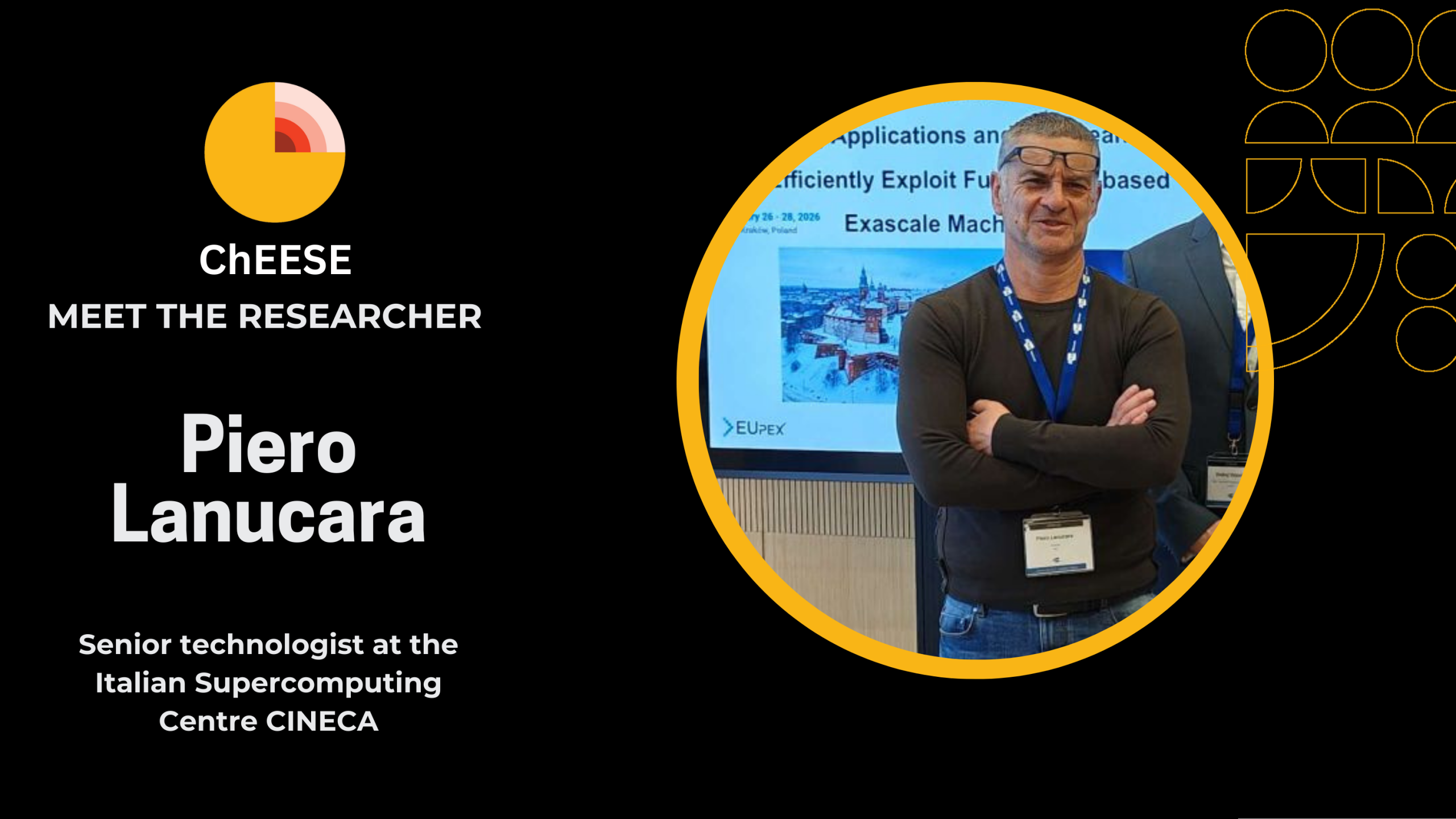A Platform for Knowledge Exchange
This workshop brought together some of Europe’s leading experts in HPC and geohazards, offering participants the possibility to explore cutting-edge applications of supercomputing in disaster preparedness and management. Through a series of insightful presentations, speakers highlighted how HPC is being leveraged to tackle challenges such as volcanic eruptions, earthquakes, floods, and wildfires.
The workshop offered participants a deep dive into how HPC technologies are helping to address some of the most pressing environmental challenges of our time, from volcanic eruptions to flood modeling and earthquake prediction. The event sparked lively discussions and new ideas about how to harness supercomputing to improve disaster preparedness and response.
One of the standout aspects of the workshop was the incredible diversity of speakers, each bringing a wealth of expertise and unique perspectives:
- Arnau Folch (CSIC, Spain): A research professor at the Geociencias Barcelona Institute, Folch shared insights on the FALL3D model, a key tool used worldwide for simulating volcanic ash transport.
- Alessandro Paciaroni (TEMA / The Lisbon Council, Belgium): Paciaroni discussed the ethical and societal implications of emerging technologies, emphasizing the role of digital governance in HPC applications for natural hazards.
- Carlos Viegas (University of Coimbra, Portugal): Viegas explored how autonomous systems and remote sensing technologies can be harnessed for disaster risk management, with a focus on fire engineering.
- Daniel Caviedes-Voullieme (EoCoE-III / Jülich Supercomputing Centre, Germany): Caviedes-Voullieme provided an in-depth look at numerical solvers for hydrodynamics and hydrology, showcasing their scalability and performance in environmental modeling.
- Mario C. Acosta (ESiWACE3 CoE / BSC, Spain): Acosta highlighted the role of HPC in Earth System Models and climate digital twin initiatives, exploring how these models help predict and mitigate environmental disasters, explaining the role of ESiWACE in its third phase.
- Mirta Rodriguez Pinilla (Mitiga Solutions, Spain): Rodriguez shared her extensive experience in data science and machine learning, discussing their applications in sustainability and natural hazard prediction.
- Yasemin Korkusuz Öztürk (Erzincan Binali Yıldırım University, Turkey): Korkusuz Öztürk presented on earthquake rupture simulations, focusing on high-risk fault lines in Turkey and the role of HPC in seismic hazard assessments.
- Tomaso Esposti Ongaro (INGV, Italy): Esposti shared the work on multiphase flow in volcanic eruptions, utilizing HPC to improve volcanic hazard assessments and tsunami predictions.
- Zoltán Horváth (Széchenyi István University, Hungary): Horváth provided insights into optimization techniques used in industrial mathematics, focusing on applications in environmental management and natural hazards.
Each speaker not only shared state-of-the-art research but also brought forward actionable insights on how these developments can be used in real-world scenarios. The diversity of topics and the caliber of speakers ensured that the workshop was not just a learning experience, but a truly enriching one.
The workshop also provided ample opportunities for networking and collaboration, allowing participants to connect with leading researchers and institutions. The potential for collaboration between academia, industry, and government was a major highlight, opening the door to new partnerships and ideas that could push the boundaries of what is possible in disaster management.
A Step Forward for ChEESE and European HPC
This successful event highlighted the critical role that projects like ChEESE-2P play in advancing HPC technologies for natural hazard management. By creating spaces for knowledge exchange, ChEESE is helping to drive the future of HPC applications in Europe and beyond, addressing some of the most urgent challenges of our time.
Published: 12 December 2024
By the ChEESE-2P Dissemination Team



